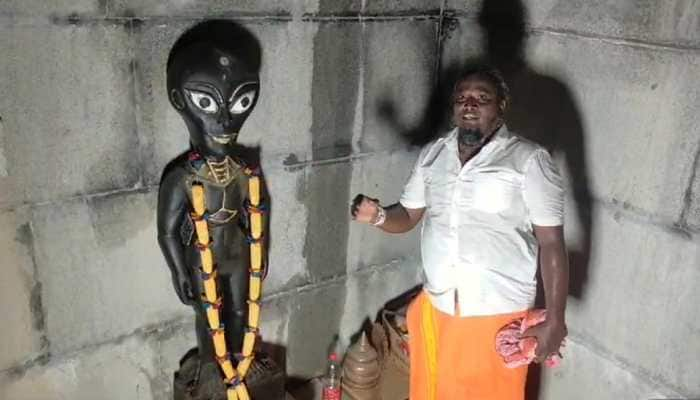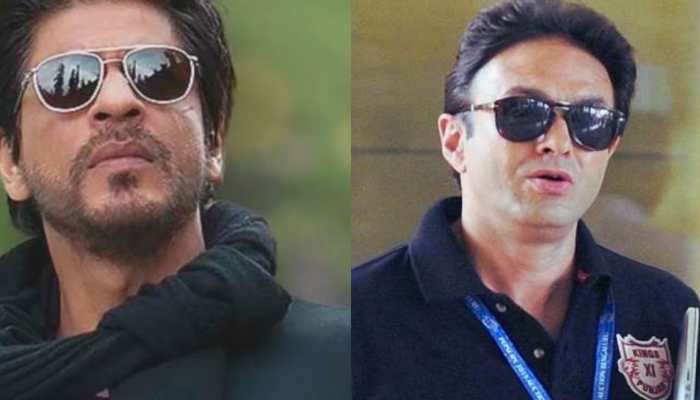Scandal ends career of US coaching icon Paterno
In a country mad for college football, Joe Paterno -- known simply as "JoePa" -- represented almost a deity of the sport.
Trending Photos
New York: In a country mad for college football, Joe Paterno -- known simply as "JoePa" -- represented almost a deity of the sport.
But the sterling reputation he built during almost five decades as head coach at Penn State University has been sullied by allegations that a long-time assistant coach sexually abused boys and school officials tried to cover it up.
Paterno, 84, a member of the College Football Hall of Fame, said on Wednesday he would retire at the end of this season amid a scandal so sordid it has been compared to the cases of pedophile priests in the Roman Catholic Church.
A titan as a coach, Paterno is unrivaled by his peers for the longevity of his success. Known for his thick glasses and navy windbreaker, he promotes the lofty notion that football players could excel on the field and in the classroom.
"Joe and (his wife) Sue are as close to deities as you can get in this town," said Nick Savereno, who attended Penn State and owns a sandwich shop near the campus at State College, the Pennsylvania town where he grew up.
The campus was in shock. Students cried, some were angry and some called for the university president to resign. Supporters left flowers at Paterno`s simple split-level home.
Amid it all, his football team prepared for the final home game of the season on Saturday as they closed in on a place in the first-ever Big Ten Championship game.
Underlining what a big presence Paterno is in U.S. college football, the winner of the inaugural Big Ten final will get the Stagg-Paterno Championship Trophy named after Paterno and pioneering coach Amos Alonzo Stagg.
Fans of the Nittany Lions, named after mountain lions that once roamed near State College and the landmark Mount Nittany, would have wanted Paterno`s final game to be a celebration like none in memory at Beaver Stadium.
Now it will likely end with Paterno`s final, unassuming walk off the field.
Such is the hoopla surrounding the team and its coach that students camp out at Beaver Stadium before home games in what locals call "Paternoville."
"I think that he really, really, really loves the school and he would do anything for the kids and for the team," said Gabby Laura, 18. "I support him completely. I`m really sad to see him go."
As one of America`s premier state colleges, Penn State uses Paterno`s image to help attract the best students and his likeness on its literature to convince alumni and donors to support their programs.
With 409 victories at Penn State, Paterno has won more games in big-time college football than any other coach in the history of a sport dating back to the late 19th century. Only a handful of other coaches, such as the late Paul "Bear" Bryant of the University of Alabama, are held in such reverence.
Paterno has been head coach at Penn State since 1966 -- an incredible 46 seasons. But he has become increasingly frail and now coaches from the press box rather than the sidelines.
A beloved institution in Pennsylvania, he won national championships in 1982 and 1986 and survived calls that he leave the post because of his advanced age.
"Success with Honor" is the motto of Paterno`s football program, which boasts high graduation rates among players.
SANDUSKY SCANDAL
Paterno`s former long-time assistant coach Jerry Sandusky is accused of sexually abusing at least eight boys over a period of more than a decade. Two other university officials are charged with not reporting an incident in 2002 when Sandusky allegedly was seen sexually assaulting a child.
Lawyers for the men have said they maintain their innocence.
Paterno, who does not face any charges and was not a target of the criminal investigation, said he was informed of an incident involving Sandusky in 2002 and passed the information up the chain of command to the university`s athletic director.
Paterno has been criticized for not following up or doing more to address the allegations.
"This is a tragedy," he said in his retirement statement. "It is one of the great sorrows of my life. With the benefit of hindsight, I wish I had done more."
"I am absolutely devastated by the developments in this case. I grieve for the children and their families and I pray for their comfort and relief," he said.
The New York Times wrote that if Penn State were the Catholic Church, Paterno would be the Pope, surely aware of what was happening and enabling the cover-up.
"With his effective silence, Paterno was protecting not only himself but also 50 years of mythology that had been building up around him since he arrived at Penn State as an assistant during the Truman administration," The Times wrote.
Born in Brooklyn, Paterno played football at Brown University from 1946-49 before joining Penn State as an assistant coach in 1950. Sixteen years later he began building his prodigious resume as head coach.
Paterno steered the Nittany Lions to seven undefeated regular seasons and Penn State claimed three Big Ten Conference titles -- one solo in 1994 and as co-winners in 2005 and 2008.
He is also the all-time leader among college coaches with 24 post-season wins in 37 bowl game appearances and is the only coach to win the Rose, Sugar, Cotton and Orange bowls.
His team struggled in 2003. When he said he would consider retirement if his 2005 team did not improve, the Nittany Lions responded with an 11-1 record.
Paterno`s program was known for churning out stars who went on to play in the National Football League. On his watch, Penn State produced 78 first-team All-Americans -- among them 10 linebackers coached by Sandusky at the school that became known as "Linebacker U."
More than 350 of Paterno`s players have signed NFL contracts, with 32 of them drafted in the first round.
Paterno was also known for his philanthropy, giving more than $4 million to Penn State for scholarships, faculty endowments and construction.
He was voted into the College Football Hall of Fame in 2006 but his induction ceremony was delayed a year so he could recover from injuries suffered in a sideline collision.
Bureau Report
Advertisement
Live Tv
Advertisement







)
)
)
)
)
)
)
)
)
)
